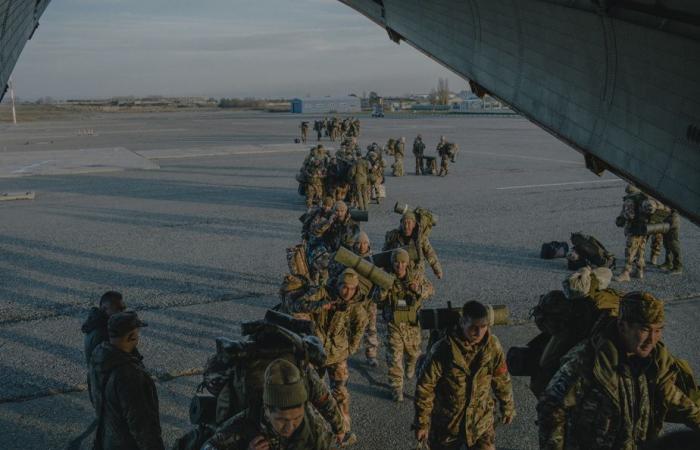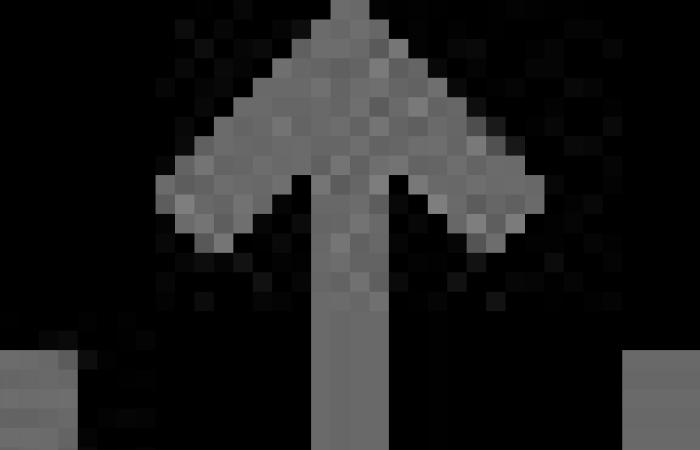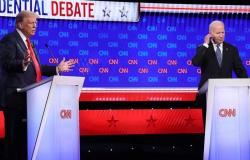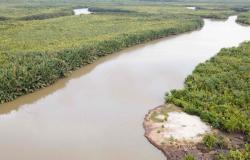(Moscow) Russia said Thursday that around 10,000 naturalized Russian foreign nationals had been sent to the front in Ukraine and acknowledged that others had preferred to leave its territory for fear of being mobilized.
Posted at 6:48 a.m.
Updated at 7:28 a.m.
Russia has been repeatedly accused of pressuring nationals of Central Asian countries living on its soil to join the army and several of these former Soviet republics have warned their citizens against the risk to be enlisted.
Alexander Bastrikin, the head of Russia’s Investigative Committee, a powerful investigative body, stressed that authorities were tracking naturalized people who had not registered with the army, as they were supposed to do.
“We caught more than 30,000 [personnes] who received citizenship [russe]but did not want to register for military service, we put them on the list,” he said during a conference, referring to the database collecting the names of people likely to to be enlisted.
“Already, some 10,000 have been sent to the zone of the special military operation,” he confided, using the euphemism imposed by the Russian state for the assault on the ‘Ukraine.
Millions of immigrants, mostly from Central Asia, work in Russia to support their families back home.
Faced with labor shortages due to decades of demographic crisis, this country has facilitated access to nationality to attract migrants.
But Russian citizenship requires its male holders to register with the army and serve under the flags if they are called up.
Mr. Bastrikine acknowledged that some workers had started “slowly to leave” due to the increase in inspections. He did not quantify this phenomenon.
In addition, police raids on workplaces and migrant homes increased after the attack, claimed by the Islamic State jihadist group, at Crocus City Hall which left more than 140 dead in March, near Moscow. . The alleged attackers were nationals of Tajikistan.
Zelensky counts on continued support from Paris
President Volodymyr Zelensky said he was convinced that the new French government which will emerge from the legislative elections would maintain its support for Ukraine in the face of Russia, Thursday in an exclusive comment to AFP.
These comments come as elections scheduled for June 30 and July 7 in France could bring to power the far-right National Rally (RN) party, regularly criticized for its proximity to Vladimir Putin’s regime.
“We believe that the French will continue to support Ukraine, whatever the political situation,” Zelensky said in a written comment to AFP.
PHOTO PROVIDED BY THE UKRAINIAN PRESIDENTIAL PRESS SERVICE, AGENCE FRANCE-PRESSE ARCHIVES
Ukrainian President Volodymyr Zelensky during a visit to the Donetsk region, Ukraine, June 26, 2024.
“Similarly, by the will of the French people, the next government will continue to fully support Ukraine both on the battlefield” and in its accession to the EU, he continued.
Hailing France for its “unwavering solidarity” since the start of the Russian invasion in February 2022, Mr. Zelensky said he had good hope that the new French government would retain its independence from Russia and remain loyal to European values.
We are confident that the next government will be independent of the Russian aggressor and will remain committed to European values and a strong and united Europe, the very Europe that Ukraine defends against Russian tyranny.
Volodymyr Zelensky, Ukrainian President
At the end of the legislative elections, French President Emmanuel Macron, a supporter of Volodymyr Zelensky, risks finding himself living alongside a far-right prime minister who could review the extent of military aid provided to Kyiv.
After posing as a mediator between Kyiv and Moscow at the start of the war and in particular calling not to “humiliate” Russia, President Macron transformed himself into a fervent supporter of Ukraine in the face of the Russian threat in Europe , pushing other states, in particular Germany, to step up their support.
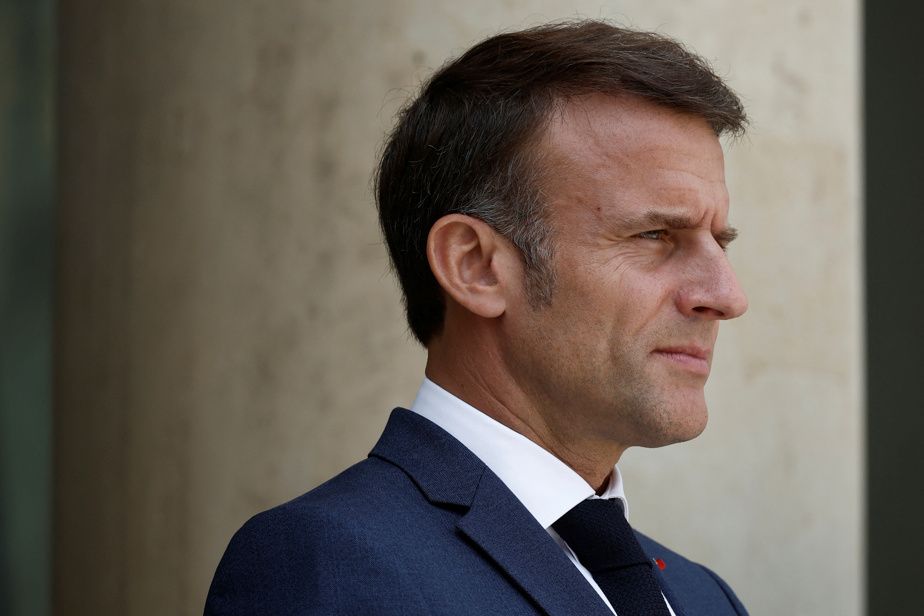
PHOTO BENOIT TESSIER, ARCHIVES REUTERS
Emmanuel Macron, French president
Troops and missiles
Emmanuel Macron thus opened the debate in February on sending Western soldiers to Ukraine, refusing to exclude this option. This idea was freshly welcomed within the European powers, certain allies – Czech Republic, Poland, Baltic States in particular – approved it.
The president of the RN Jordan Bardella, who could become the next head of the French government, is opposed to sending French troops to Ukraine as well as to the delivery of “long-range missiles” allowing the Ukrainian army to strike Russian territory.
“This would create the conditions for a co-belligerence of France and the conditions for an escalation” against Russia, “a nuclear power”, Mr. Bardella estimated on Monday in Paris.
PHOTO JULIEN DE ROSA, AGENCE FRANCE-PRESSE ARCHIVES
Jordan Bardella, president of the far-right National Rally party
Moscow, whose troops invaded Ukraine in February 2022, is playing on these fears to try to divide the Western camp supporting and arming Kyiv.
The position of the RN is in contradiction with that of President Macron, who agrees that Ukraine can use Western weapons in order to “neutralize” the military sites used to attack it and today largely protected , because it is on Russian soil.
Jordan Bardella, on the other hand, affirmed on Monday that he would be “extremely vigilant” in the face of “attempts at interference by Russia”.
I consider Russia to be a multidimensional threat both to France and to Europe.
Jordan Bardella, president of the far-right National Rally party
France is not the only Kyiv ally whose support could be called into question in the coming months, a dangerous situation for Ukraine, extremely dependent on Western aid and exhausted by two years of war with its powerful neighbor.
A possible victory for Donald Trump in the November presidential election in the United States raises fears of a reduction, or even an interruption, of crucial American military aid to Ukraine.
Faced with this risk, NATO decided in mid-June to take control of the coordination and provision of Western military assistance to the Ukrainians, a task until now carried out by Washington, to anchor it in the duration.
It is indeed a question of putting in place a “Trump-proof” system, said a diplomat from the Atlantic Alliance.

